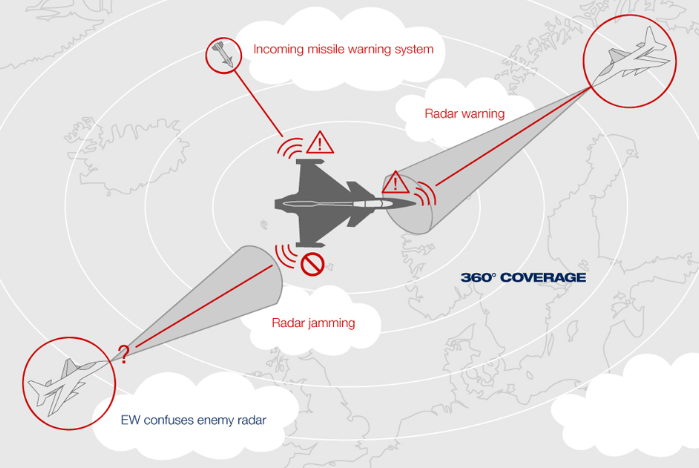Electronic warfare devices are basically warfare equipment that uses the electromagnetic spectrum for sensing, protecting and communicating. Signals like radio, radar or infrared are used in these warfare devices.
Latest Context (April 2021): Iran has unveiled an underground facility called the ‘Missile City.’ It is equipped with cruise and ballistic missiles and electronic war devices. Hence, candidates should know what EW Devices are and what are its applications.
Defence and Internal Security are important topics for the IAS Exam. Students preparing for it must know about these topics from the UPSC Prelims point of view.
| Candidates preparing for the Civil Services Examination should refer to the following links to not leave any stone unturned in the preparation: |
What is Electronic Warfare?
- Warfare that involves the use of the Electromagnetic Spectrum (EM Spectrum) or Directed Energy in order to control the spectrum, attack the enemy or impede the enemy assaults can be defined as Electronic Warfare.
- The usage of directed/focused energy is to confuse or disable the enemy’s electronics. This generally includes the use of Radio Waves or Laser Light beams.
- Applications of EW are vast and can be implemented from Land, Sea, Air and even Space by either manned or unmanned systems.
- EW allows the user to target not only communication radar but also other military and civilian assets.
- One such application is collecting information from the enemy’s radio signal or detecting an incoming missile from radar.
- There are three major subdivisions within electronic warfare: electronic attack, electronic protection, and electronic warfare support.

Devices that assist and are used for electronic warfare are described as EW Devices.
- These devices can be categorised into three based on their functions:
- Electronic Warfare Attack
- Electronic Warfare Protection
- Electronic Warfare Support
For more UPSC Science and Technology Notes, visit the linked article.
Application of Electronic Warfare (EW) devices
Military operations make use of EW devices in an information-rich environment increasingly complicated by the electromagnetic spectrum. The electromagnetic spectrum portion of the information environment is referred to as the electromagnetic environment (EME). The recognized need for military forces to have unimpeded access to and use of the electromagnetic environment creates vulnerabilities and opportunities for electronic warfare in support of military operations.
NATO has a different and in all likelihood, a far more encompassing and comprehensive approach to EW. A military committee conceptual document from 2007 recognised the EME as an operational maneuver space and warfighting environment/domain. In NATO, EW is considered to be warfare in the EME. NATO has adopted simplified language which parallels those used in the other warfighting environments like maritime, land and air/space.
Primary EW activities have been developed over time to exploit the opportunities and vulnerabilities that are inherent in the physics of EM energy. Activities used in EW include:
- Electro-optical,
- Infrared and radio frequency countermeasures;
- EM compatibility and deception;
- Radio jamming,
- Radar jamming
- Deception and electronic counter-countermeasures (or anti-jamming)
Electronic Warfare (EW) Devices in India
The Defence Research and Development Organisation (DRDO) developed the Defence Avionics Research Establishment (DARE). It is an EW Suite consisting of Radar Warning and Jammer.
The main features of this EW suite include an additional capability of nullifying the effect of detected radar threat by appropriate mode of jamming.
The Defence Research and Development Organisation (DRDO) has successfully tested advanced electronic warfare (EW) suite on the Tejas-PV1, a Light combat aircraft of the Indian Airforce.
Other EW Devices by DRDO include:
- Electronic Warfare System for Navy ‘Sangraha’
- It is a joint electronic warfare system between DRDO and the Indian Navy.
- Under it, five different types of indigenous EW systems have been envisaged:
- KITE
- EAGLE
- HOMI ESM
- PORPOISE ESM
- EW suite ELLORA
- Electronic Warfare System for Army ‘Samyukta’
- It is a joint electronic warfare programme between DRDO and the Indian Army.
- The system is configured on 145 vehicles for deployment in an area of 100 km by 70 km for Surveillance, Interception, Direction Finding & Jamming of various Communication & Radar Signals.
Also read about the BrahMos Missile for further defence related UPSC Content.
EW Devices – UPSC Notes:- Download PDF Here
FAQ about Electronic Warfare (EW) Devices
What are Electronic Warfare (EW) devices made of?
Where would these Electronic Warfare devices used?
For such well-curated articles click on the links given in the table below
Related Links:
Comments